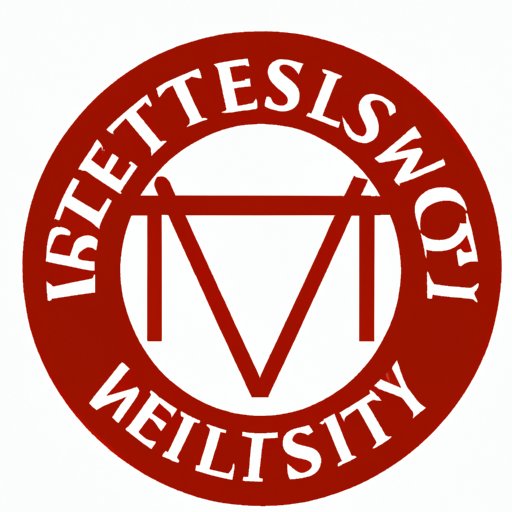Introduction
Methodism is a Christian denomination that originated in England in the 18th century and has since expanded globally. Methodists are known for their emphasis on personal spiritual experience and social justice. In this article, we will explore the history, beliefs, and practices of Methodism, from its origins to modern-day challenges and opportunities.
The History of Methodism: Understanding the Beliefs and Practices of Methodists
The Methodist Church was founded by John Wesley, an Anglican priest, and his brother Charles Wesley. The movement arose as a response to what they believed was the spiritual apathy and moral decay of the Church of England during the 1700s. Wesley emphasized the importance of personal salvation, a doctrine that was based on the idea that one’s spiritual state depended on a personal relationship with God and a deep commitment to Christian teachings.
In the following years, the Methodist Church’s membership grew rapidly, and it soon became one of the largest and most influential Christian denominations in the world. Today, the Methodist Church has over 80 million members worldwide, with the majority located in the United States and the United Kingdom.
Who Are the Methodists and What Do They Believe? A Comprehensive Guide
Methodists believe in the importance of salvation through faith in Christ and the power of the Holy Spirit. They emphasize the importance of practicing personal piety through prayer, Bible study, and regular worship. Additionally, Methodists believe in social holiness – that is, the idea that Christians have a responsibility to engage in acts of social justice and to love and care for their neighbors.
Methodists also follow the basic doctrines of the Christian faith, including the holy trinity, the divinity of Christ, and salvation through grace. They view baptism and communion as sacraments and practice them regularly.
Methodists place a strong emphasis on the authority of scripture, believing that the Bible is the ultimate source of guidance and wisdom. However, they also recognize the importance of tradition, reason, and experience in interpreting scripture and making theological decisions.
Methodist Identity: Discovering the Core Values of This Christian Denomination
The Methodist Church is known for its commitment to social justice issues, including civil rights, poverty, and healthcare. Methodists also have a long history of advocating for women’s rights and LGBTQ+ inclusion.
Additionally, the Methodist Church places an emphasis on education and academic scholarship. Many prominent universities, such as Duke and Emory, have Methodist roots.
The core values that define Methodist beliefs and practices include a commitment to personal transformation, social justice, and inclusivity. Methodists believe that each person has the potential to be transformed through their relationship with God and that this transformation can lead to a more just and compassionate society.
Exploring the Diversity Within Methodism: An In-Depth Look at Different Methodist Churches
There are several factions within the Methodist Church, each with its own unique beliefs and practices. For example, the African Methodist Episcopal Church was founded by former slaves and has a strong emphasis on social justice and civil rights. The United Methodist Church, the largest faction, is known for its focus on education and academic scholarship.
The Methodist Church also includes a variety of different organizations, including Wesleyan denominations, holiness movements, and the Salvation Army. Despite these variations, all Methodist factions share a commitment to personal piety and social justice.
Methodism is also diverse in its theological perspectives, with variations in beliefs about issues such as predestination, free will, and the role of the sacraments. Additionally, there are significant differences in beliefs and practices between Methodist Churches in different parts of the world.
The Rise of Methodism: How John Wesley’s Teachings Sparked a Religious Movement
John Wesley’s teachings on personal piety and social justice resonated with many people, leading to the growth of the Methodist Church in England and eventually throughout the world. Wesley traveled extensively, preaching and teaching, and his sermons were widely distributed and published. Additionally, Wesley’s emphasis on education and scholarship led to the establishment of several Methodist universities in the U.S. and other countries.
The social and religious context of the time also contributed to the growth of Methodism, including the Industrial Revolution and the Enlightenment. Methodism offered a way for people to find meaning and purpose in a rapidly changing world and emphasized the importance of reason and experience in addition to faith.
Breaking Down Methodist Theology: Analyzing Key Doctrines and Beliefs
Methodist theology is based on the belief that each person has the potential for personal transformation through their relationship with God. Additionally, Methodists believe in the importance of social justice and actively work to promote equality and fight against injustice.
Some key doctrines and beliefs within Methodism include the doctrine of justification by faith, the doctrine of the Holy Spirit, and the doctrine of sanctification. Additionally, Methodists view baptism and communion as sacraments, and the emphasis on personal transformation is often reflected in Methodist worship services.
Methodism Today: Examining the Modern-Day Challenges and Opportunities Facing Methodist Churches
The Methodist Church, like many other Christian denominations, faces several challenges in the modern world, including declining membership and the shift towards secularism. Additionally, issues such as LGBTQ+ inclusion and the role of women in the church have caused significant controversy and division within the Methodist Church.
However, the Methodist Church also has several opportunities for growth and renewal, including its commitment to social justice and inclusivity. Additionally, technological advancements and a changing social landscape offer new opportunities for outreach and evangelism.
Conclusion
Methodism is a vibrant and diverse Christian denomination with a rich history and deep commitment to personal transformation and social justice. Despite its challenges, the Methodist Church continues to play a significant role in promoting equality and compassion throughout the world.
To learn more about Methodism, we recommend exploring Methodist theological texts, attending a Methodist Church service, or engaging in discussions with members of the Methodist community.
